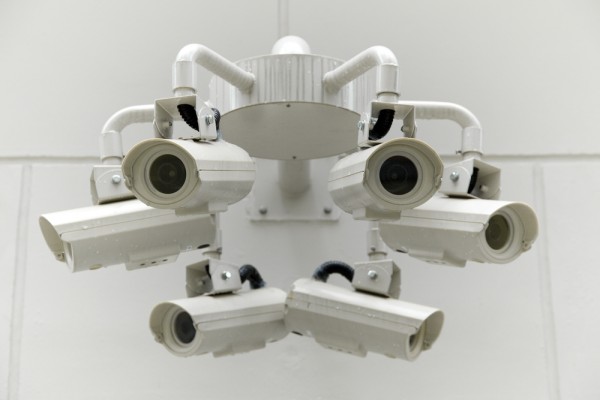Boston bombing lesson: Surveillance cameras work

As we all recap the Boston bombing and manhunt events in our minds, looking for lessons learned, the one that sticks out in my head is the value of surveillance cameras. They were essential to catching the perpetrators and doing so quickly. More aggressive use of them might have resulted in even faster capture, and the civil rights and privacy concerns people express about them are hysterical overreaction.
The value of surveillance cameras was obvious almost immediately after the event. I remember many experts interviewed predicting that they would be used to narrow down suspects rather quickly. In fact, you don't need an expert to understand this. The only people who didn't seem to understand it well were the Tsarnaev brothers. They stayed in town and tried to go on with their lives, indicating that thought they wouldn't be detected. They must have freaked out when they saw their pictures on the news, but they still didn't get out of Dodge.
The People Difference
One of the more fascinating stories is that one of the victims, marathoner Jeff Bauman who lost both his legs as a result of the explosion, gave the police crucial witness testimony early on, according to Bloomberg News:
He woke up under so much drugs, asked for a paper and pen and wrote, 'bag, saw the guy, looked right at me,' [the victim's brother] Chris Bauman said yesterday in an interview...While still in intensive care, Bauman gave the FBI a description of the man he saw, his brother said. Bauman’s information helped investigators narrow down whom to look for in hours of video of the attack, he said.
In other words, the witness account helped the police to use the video evidence more effectively. The description on its own would probably not have helped all that much.
We still don't know what led to them shooting an MIT policeman, starting a chain of events leading to both perpetrators being shot and the younger brother getting away for a time. But it's safe to say that the massive lockdown of the city in that intervening period did not lead to the suspect being caught. In fact, what led to him being caught was that they ended the lockdown. That's when the boat owner went out to look at his craft and noticed the blood. By taking people off the streets, the government also removed their eyes and ears.
If you're going to take human eyes and ears off the street you need alternatives: More public cameras (and perhaps microphones) might have found the suspects sooner than they were found.
Set Clear Rules
Many people don't like the idea of public surveillance cameras, fearing their rights will be violated. Consider this thought exercise: Wherever you have the camera (and perhaps a microphone), would you object to having a police officer in that spot looking and listening? Usually there's no good reason to object. What's the difference? The difference amounts to the fact that many cameras and microphones and big data analysis are more effective than human police. Is this really a reason to object? I say no.
The 1984 image of Big Brother always watching wasn't so scary because he was watching street corners and public plazas, but that he was watching in your house and in your car and at all times. Public surveillance cameras don't belong where people have a reasonable expectation of privacy, and nobody has a reasonable expectation of privacy out on the street. It makes no sense to say that the police shouldn't have the ability to observe public places.
If only to make people more comfortable with the prospect, I think it's reasonable and important to set clear laws on how data from this surveillance can and cannot be used. For instance, it might be reasonable to say that video can only be used in criminal, not civil investigations. Access to the data should be carefully controlled and all access, or at least all offline access to the data, should be carefully logged to show who was accessing it and for what reason. Abuse of the data for personal reasons should be punished.
The above rules follow logically for cameras owned and operated by a governmental agency, but many of these cameras are privately owned. Even so, when government gains access to the data from private cameras the same rules can and should follow for government personnel. If Lord and Taylor has a camera showing the sidewalk outside their store then their security personnel aren't under the same rules, but neither can they arrest nor prosecute people.
It's not surprising that people find public cameras spooky, but there's no real need for surveillance to result in violations of any rights. Just because police officers are capable of violating someone's rights doesn't mean we do away with them. More effective law enforcement is a good thing.
Photo Credit: brodtcast/Shutterstock